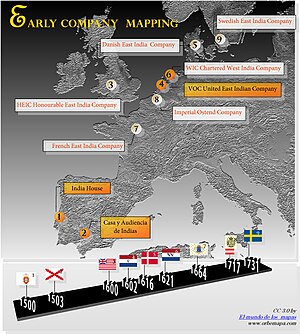"Isn't that a morbid title?" Why yes, it is, but it's an important topic. A lot of people, especially those from Alabama, are soon going to be flocking to Florida for the BCS Championship. That's about a 13 hour drive from central Alabama. It's a lot of mileage, a lot of sitting in the car, and a lot of "Are we there yets?" Miami is busy enough as it is, and it's probably going to be pretty hectic when all the fans and ticket holders rush in to see arguably the most exciting game of college football all year.
If at some point during your road trip (outlined in this map) you happen to fall asleep at the wheel, get into an accident, hit a pedestrian, or cause the death of someone by any other means, it's important to know what to do instead of just flying into a panic. Accidents happen, and you don't want to be like those individuals in The First 48 who bawl after a little police pressure, give everything up without a lawyer present, and end up in jail while the police smile at the camera.
No, you need to know your rights. You might feel terrible and that's understandble, and the police might throw threatening words like "vehicular manslaughter" at you. Even if you weren't drinking, on drugs, or doing anything else illegal (and moreso if you were), you still should have a lawyer present. It might have been an unavoidable accident and if so, say that to the officers but not much else. You want to be represented fairly and not get in any more trouble than you deserve to be in.
So, be safe in your travels and road trips, but if something awful happens, it's best to contact your insurance company and a lawyer right away. If you're feeling tired or unable to drive, let someone else in the car drive. If everyone needs some rest, stop on the way there and check into a hotel. Short on cash? Nap at a rest area. It's better to be safe than sorry.
Tuesday, December 25, 2012
Sunday, November 4, 2012
Reducing Health Care Cost, But Not Quality
 |
| (Image source: Getty Images via @daylife) |
And while many single out insurance and drug companies as part of the problem, a strong case can be made for the importance of private sector R&D driving innovation…which could be negatively impacted by healthcare reforms. But no matter what side of the debate(s) you come down on, there’s widespread agreement that greater efficiency and cost reductions in the system are essential.
So, how do we get there?
In the past, other groups have looked at opportunities for cost savings in the healthcare industry and provided their recommendations, one in particular that sticks out is a whitepaper titled Spend Management: The Antidote to the Healthcare Crisis. They dug into “the spending and procurement practices of over 300 global companies and found that the U.S. healthcare sector could collectively reduce supply chain costs by $40 billion through improved spend management practices, policies, and automation.” The projected increase in profits created by those savings come in at $26.7 billion.
The whitepaper outlines actions that healthcare organizations - from service providers to insurers to pharmaceutical companies - can take to find these savings and drive them to the bottom line. The major recommendations are:
- Standardize processes: Consistent processes reduce risk, improve efficiency and productivity.
- Adopt new technologies: Process efficiency through automation can provide greater visibility into spend and supplier performance.
- Leverage external expertise and services: If the company lacks in-house expertise, supplier relationships or process efficiency, seek outside help.
Another cost cutting articles of interest:
Tuesday, October 16, 2012
Doing Business Global
It's always important to be concerned with how to reach the decision
maker in large corporations and, along the way, he does quote often from Jill
and a number of others. Now this is an important topic but two things caught my
attention. For starters, the tone of the article suggests that Becker has found
some new insight in how to talk to the customer. He seems to have had his
revelation from Konrath: “Konrath mentions a client who’s had success selling
an IT solution to investment banks… The secret is he hardly mentioned his
product or his company” Excuse me, but for just how many people is this
approach a secret? Can this really be classed as a new insight for those
selling solutions?
These questions are linked to the second point that brought
me up short. Here’s Becker again: “First, you need a broad understanding of the
way things have changed within corporate America - and that some of the sales
wisdom of the old days doesn't hold up.” Does this mean that doing business in
corporate America is radically different to doing business in corporate
Britain? As if in answer, Becker has this to say: “Committee-based decisions
are much more common now. This makes sales easier in some ways, and harder in
others. It’s harder to figure out who to talk to because there’s usually not
one person with all the power. On the other hand, it can be easier to instigate
a productive conversation, because there might be a dozen people who can
influence your sale. That also means sales are more complicated. You can’t just
convince one person. Suddenly, selling requires matching your client’s buying
process.”
Now, I’m not sure if I’ve missed the point, but in my
experience of selling solutions I don’t think I’ve come across a situation
where the decision has been made just by one person. So how new is this concept
of “committee-based decision” making? Is this different to what we see in
Britain? Hardly.
When it comes down to helping sales people to become more
effective I don’t think there is anything to be gained by trying to distinguish
between selling in corporate America from selling in corporate Britain, or
corporate France, or corporate Europe, or indeed corporate anywhere else.
Thursday, August 30, 2012
Making a Short Sale
If you are struggling to make the monthly mortgage payments
on your home, foreclosure is not your only option. In fact, it should be the
last options that you have left after you have exhausted all other avenues. A
foreclosure judgment against you will have a severe impact upon your credit for
years to come. It will make it difficult for you to secure housing after you are
forced to move out of your home. You do not have to face foreclosure; you can
still ask for a loan modification or seek out short sale help in
order to reduce your monthly payments to something that is more manageable.
The last thing that a mortgage lender wants to do is go
through the expensive and lengthy process of a foreclosure. They have to pay
court costs and man hours for foreclosures. These lenders would much rather
come to some sort of agreement or settlement in order to satisfy the debt
without a foreclosure, especially given the high number of homes that are going
through foreclosure proceedings right now. Your lender will be much more apt to
reach some type of settlement with you then have to go through the back logged
courts. A loan modification or some short sale help will get you back in
control of your finances and out of the stressful situation that you are in.
If you are interested in obtaining a loan modification or
some short sale help then it is imperative that you enlist the services of a
skilled and professional lawyer to represent you. Your lawyer will deal with
your mortgage lender and try to work out some type of deal so that you do not
have to foreclose on your home. Make sure that you research the lawyer that you
are hiring to make sure that they have the experience and knowledge needed to
get you a successful outcome.
The right lawyer will be able to negotiate with the mortgage
company and come up with a reduction in your monthly loan payment if you have
your loan modified. Or, in the case of a short sale, your lawyer will
significantly reduce and possibly eliminate the amount of money that you owe
your lender. Don't go into the situation blind, get the right information to come out on top.
Saturday, June 30, 2012
Transporting Goods For Businesses
| English: Modified version of :Image:World map.png, which was created by John Monnpoly (Photo credit: Wikipedia) |
Part A: Assembling the raw materials. All products are different, and require different materials, but bringing all the necessary raw materials together requires a bit of math and coordination so there are no shortage or surplus of items.
Moving products around internally requires an automated conveyor system to minimize waste and improve efficiency. Most of the waste in this step is a result of human error, and computer software systems are designed to eliminate that. Inventory management is a part of logistics that keeps count of everything in a warehouse, and requires immense coordination that is better done by a software system.
Getting the products to stores or shopping centers is the final step and requires branching out the product into many different lines. Transporting the items in bulk by train, ship or semi is usually the preferred method, but again, every product is different and requires a different method. Perishable products like fruit and vegetables are sometimes flown across the world to keep them fresh.
Related articles
Friday, June 22, 2012
Investing in a Bad Economy
| Economy (Photo credit: yourdoku) |
Tech companies rely on people's instant need for news, products, services and social connections to make a profit. With constant improvements in this industry, new products and services are emerging, resulting in a demand for talented workers.
Foreign economies are picking up the slack from the US markets. Many manufacturing industries continue to do poorly in the United States, but there is a huge demand for them from foreign industries. Investing in these industries may not be a bad part of your funds. The risk will be high, and they could easily tank in the short run, but I wouldn't count on it for the long run.
Tuesday, April 3, 2012
Running a business
Running a business is not as easy as it seems. Hidden costs and extra things that you don't have time to deal with will always creep up on you. Before you start a business, read my blog and do so in the "least risk" way possible. Many more posts to come, hope you enjoy!
Subscribe to:
Posts (Atom)














